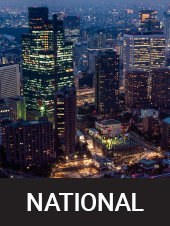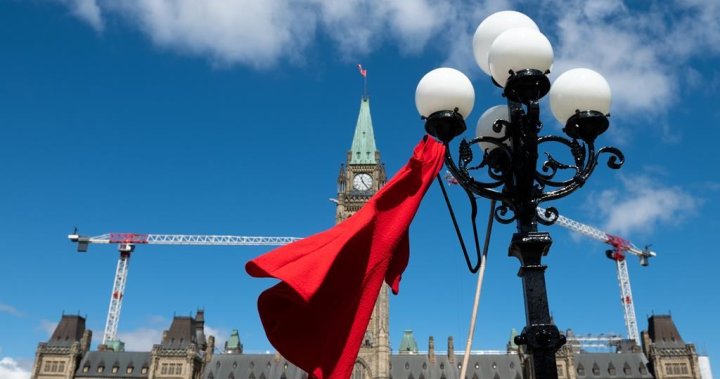Ukraine’s top military commander says his forces now control 1,000 square kilometers (386 square miles) of Russia’s neighboring Kursk region, the first time a Ukrainian military official has publicly commented on the gains of the lightning incursion that has embarrassed the Kremlin.
Gen. Oleksandr Syrskyi made the statement in a video posted Monday to Ukrainian President Volodymyr Zelenskyy’s Telegram channel and other social media platforms. In the video, he briefed the president on the front-line situation.
“The troops are fulfilling their tasks. Fighting continues actually along the entire front line. The situation is under our control,” Syrskyi said.
Russian forces are still scrambling to respond to the surprise Ukrainian attack after almost a week of fierce fighting.
Russian President Vladimir Putin said the incursion, which has caused more than 100,000 civilians to flee, is an attempt by Kyiv to stop Moscow’s offensive in eastern Ukraine’s Donbas region and gain leverage in possible future peace talks.
Zelenskyy confirmed for the first time that the Ukrainian military is operating inside the Kursk region. On Telegram, he praised his country’s soldiers and commanders “for their steadfastness and decisive actions.” He did not elaborate.

Speaking Monday at a meeting with top security and defense officials, Putin said the attack that began Aug. 6 appeared to reflect Kyiv’s attempt to achieve a better negotiating position in possible future talks to end the war. He insisted Moscow’s army would prevail.
Putin said Ukraine may have hoped that the attack would cause public unrest in Russia, but that it has failed to achieve that goal, and he claimed that the number of volunteers to join the Russian military has increased because of the assault. He said Russian forces will carry on with their offensive in eastern Ukraine regardless.
“It’s obvious that the enemy will keep trying to destabilize the situation in the border zone to try to destabilize the domestic political situation in our country,” Putin said. Russia’s main task is “to squeeze out, drive the enemy out of our territories and, together with the border service, to ensure reliable cover of the state border.”
Acting Kursk Gov. Alexei Smirnov reported to Putin that Ukrainian forces had pushed 12 kilometers (7.5 miles) into the Kursk region across a 40-kilometer (25-mile) front and currently control 28 Russian settlements.
The map above shows where Ukrainian military forces are operating inside Russia’s Kursk region as of Aug. 11, 2024. (AP Digital Embed).
Smirnov said 12 civilians have been killed and 121 others, including 10 children, have been wounded in the operation. About 121,000 people have been evacuated or left the areas affected by fighting on their own, he said.
The email you need for the day’s
top news stories from Canada and around the world.

Get daily National news
Get the day’s top news, political, economic, and current affairs headlines, delivered to your inbox once a day.
Tracking down all the Ukrainian units that are roaming the region and creating diversions is difficult, Smirnov said, noting that some are using fake Russian IDs.
The governor of the Belgorod region adjacent to Kursk also announced the evacuation of people from a district near the Ukrainian border.
Ukrainian forces swiftly rolled into the town of Sudzha about 10 kilometers (6 miles) over the border after launching the attack. They reportedly still hold the western part of the town, which is the site of an important natural gas station.

The Ukrainian operation is under tight secrecy, and its goals remain unclear. The stunning maneuver that caught the Kremlin’s forces off guard counters Russia’s unrelenting effort in recent months to punch through Ukrainian defenses at selected points along the front line in eastern Ukraine.
Zelenskyy said the the territory now controlled by Ukrainian forces was used to strike Ukraine’s Sumy region many times, adding that it is “absolutely fair to destroy Russian terrorists where they are.”
“Russia brought war to others. Now it is coming home,” he said in a video posted on his Telegram channel.
Russia has seen previous incursions into its territory during the nearly 2 1/2-year war, but the foray into the Kursk region marked the largest attack on its soil since World War II, constituting a milestone in the hostilities. It is also the first time the Ukrainian army has spearheaded an incursion rather than pro-Ukraine Russian fighters.
The advance delivered a blow to Putin’s efforts to pretend that life in Russia has been largely unaffected by the war. State propaganda tried to play down the attack, emphasizing the authorities’ efforts to help residents of the region and seeking to distract attention from the military’s failure to prepare for the attack and quickly repel it.
Kursk residents recorded videos lamenting they had to flee the border area, leaving behind their belongings, and pleading with Putin for help. But Russia’s state-controlled media kept a tight lid on any expression of discontent.

Retired Gen. Andrei Gurulev, a member of the lower house of the Russian parliament, criticized the military for failing to properly protect the border.
“Regrettably, the group of forces protecting the border didn’t have its own intelligence assets,” he said on his messaging app channel. “No one likes to see the truth in reports, everybody just wants to hear that all is good.”
The combat inside Russia rekindled questions about whether Ukraine was using weaponry supplied by NATO members. Some Western countries have balked at allowing Ukraine to use their military aid to hit Russian soil, fearing it would fuel an escalation that might drag Russia and NATO into war.
Though it’s not clear what weapons Ukraine is using across the border, Russian media widely reported that American Bradley and German Marder armored infantry vehicles were there. The claim could not be independently verified.
Ukraine has already used U.S. weapons to strike inside Russia.

Italian Foreign Minister Antonio Tajani said in an interview published Monday that the weapons provided by his country “cannot be used to attack Russia on its territory.”
Meanwhile, German Defense Ministry spokesperson Arne Collatz said Monday that legal experts agree that “international law provides for a state that is defending itself also to defend itself on the territory of the attacker. That is clear from our point of view, too.”
Russia’s Defense Ministry said Monday that reinforcements sent to the area backed by air forces and artillery had fended off seven attacks by Ukrainian units near Martynovka, Borki and Korenevo during the previous 24 hours.
The ministry said Russian forces also blocked an attempt by Ukrainian mobile groups to forge deep into Russian territory near Kauchuk.
Pasi Paroinen, an analyst with the Finland-based Black Bird Group open-source intelligence agency, which monitors the war, said the toughest phase of Ukraine’s incursion is likely to begin now as Russian reserves enter the fray.





